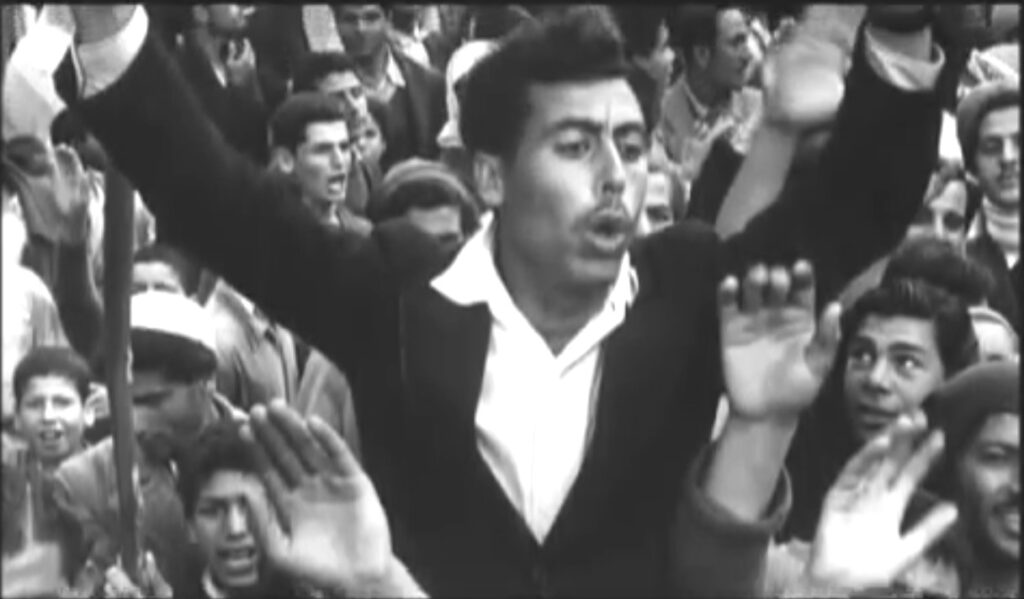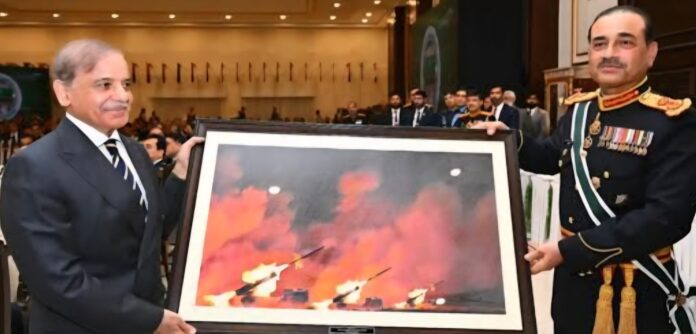Celebrations in Pakistan are in full swing. After a hard hitting attack by Indian military under ‘Operation Sindoor’ that not only destroyed terrorist camps in Pakistan-occupied Kashmir, but also its air force bases and military assets. Fearing a coup, which is a tradition in Pakistan after a failed war, Prime Minister Shehbaz Sharif quickly elevated Pakistan Army Chief Asim Munir to the rank of Field Marshal. Gen Munir returned the favour with presenting what looked like a memento from the battlefield, three rockets setting the sky ablaze. And Lo!, like its proclaimed victory, picture was also fake, It was of Chinese Army testing rockets during a drill in 2019.
But Pakistan is not alone in celebrating a victory that never was. There are several instances in history – from Six Day War in Israel to siege of Rome by Hannibal – where what looked like a victory was actually a defeat.
Six Day War and Egypt’s “Victory” over Israel
In June 1967, Egypt, under the leadership of President Gamal Abdel Nasser and Field Marshal Abdel Hakim Amer, entered the Six-Day War against Israel with high hopes of regional dominance. The Egyptian army, boasting Soviet-supplied equipment, seemed poised for victory, especially after the closure of the Straits of Tiran to Israeli shipping.
On the evening of June 5, 1967, Cairo Radio declared: “We have shot down 70 Israeli planes!”
But on the same day the Israeli Air Force conducted preemptive strikes and wiped out almost entire Egypt’s air force in an attack so swift that not a single aircraft could take off from the tarmac. Ironically, Egyptians were dancing in the streets chanting “victory” when this happened. The ministers congratulated each other, and Nasser spoke of an Arab triumph.

The denouement came swiftly. The Egyptian army disintegrated across the Sinai peninsula, abandoning tanks, artillery, and supplies in a chaotic retreat toward the Suez Canal. Shock swept across Egyptians. Nasser announced his resignation. However, euphoric masses broke down on hearing the news but did not let their leader resign. The Arab Coalition soon found out that it has lost Sinai, Gaza, West Bank, and Golan Heights.
Hannibal’s slaughter of much bigger Roman army
In 216 BC , Romans superpower was confident with its numbers that with 80,000 armed soldiers, it will crush Hannibal Barca, one of the most brilliant military minds of the ancient world. His audacious crossing of the Alps in 218 BC with war elephants, remains a feat of daring logistics and strategy. Before the battle, the Romans thought their superior numbers would crush Hannibal. Senators and generals bragged that the Carthaginian threat would be over in a day. But the moment of realisation came when the Roman army advanced, they realized that Hannibal had already encircled them in a pincer movement. The “victory” chants turned into screams. Nearly 50,000 Romans were slaughtered.
Napoleon’s Invasion of Russia – The Moscow Trap
Historically, Russia has remained indomitable to all military and religious crusades from the Europe over centuries. Save for a moment of victory Napoleon Bonaparte had. Having forged an empire that stretched from Spain to Poland, Napoleon sought to force Tsar Alexander-I to accept Continental system and beg for peace after defeat. In June 1812, Napoleon’s Grande Armée of over 600,000 men marched into Russia. The Russians, under General Mikhail Kutuzov, adopted a scorched-earth policy, retreating steadily and drawing Napoleon deeper into the vastness of the Russian plains. Napoleon captured Moscow in September 1812, believing the Russian Tsar would soon surrender. In a letter, he wrote: “I am master of Moscow. The Russian empire is mine.” But Russian had already burnt down Moscow and abandoned. No one came to negotiate with Napoleon. As days passed, rations depleted and there was not a grain of food for the French soldiers. The winter started to set in, Napoleon’s army starved and froze to death while trying to retreat. By December, his Grand Armée was reduced to fewer than 100,000.
Insane bombing of Viet Nam, yet Victory eluded the US
What happened in U.S. invasion of Viet Nam, known as “Tet Offensive of 1968”? The U.S. claimed it has crushed the Viet Cong (communist armed movement), inflicting heavy casualties. President Lyndon B. Johnson’s team reported: “We have won the battle for Vietnam!” Media coverage of helpless children screaming, fleeing mindless bombing, including Walter Cronkite’s famous report doubting American victory despite extensive massacre of civilians, forced the US to start pulling out.
Bribe of £1mn couldn’t stop British Defeat by Ottoman
Even a bribe of £1 million could not buy the British a surrender from Ottoman army in Mesopotamia in 1916 during World War 1. “It is with the gravest regret that I must report our condition is beyond endurance. Without immediate relief, I fear we must capitulate,” wrote Major-General Charles Townshend leading 13,000 British and Indian troops which were besieged by Ottoman forces under Grand Vizier Halil Pasha. Early in the Siege of Kut, as it came to be known, British generals assured London that Ottoman forces would be crushed. But after 147 days of fighting and siege, food supplies dwindled, and disease spread among the soldiers and British forces surrendered—one of the largest capitulations of the war. Over 13,000 troops were taken prisoner. The British colonists suffered a humiliating defeat at the hands of a lesser-equipped Ottoman force.
Japanese seize Singapore from British
Similarly British suffered a reversal in capture of Singapore. British commanders believed Singapore was an “impregnable fortress.” Churchill famously said: “Singapore is the Gibraltar of the East.” But Japanese troops, moving through the jungle, took Singapore by surprise. On February 15, 1942, the British surrendered.
What makes Pakistan different?
Numerous examples are there in history where pride of victory soon gave way to humiliation of defeat after the dust of war settled down. But Pakistan will stand out as first country in the history which has not only refused to acknowledge defeat but also celebrating defeat as victory. To top it, Shehbaz Sharif quickly elevated General Munir to Field Marshal rank. What did General Pervez Musharraf say after Kargil War? “We got India by neck.” Only to be countered by his own officers that narrated how badly Pakistan lost.
Several reports before India attacked said elder Sharif (Nawaz Sharif) warned younger Sharif (Shehbaz Sharif) about not to trust army chief at the time of war, giving his own example how he was overthrown by Gen Pervez Musharraf after Kargil War on 12 October 1999. Coups at the time war are a tradition in Pakistan. Gen. Ayub Khan overthrew President Iskandar Ali Mirza in 1958, Gen Zia-ul Haque overthrew President Zulfikar Ali Bhutto and executed him, and Gen. Musharraf overthrew Prime Minister Nawaz Sharif in 1999. Shehbaz couldn’t be taking chances. Shehbaz quickly promoted Munir to Field Marshal rank before he takes all trouble to stage a coup to become one. In an emotional moment, Munir returned the favour. He presented a framed picture of rockets being fired. Only to find the picture was of rockets being tested by China during an army drill in 2019. As fake as their victory.



